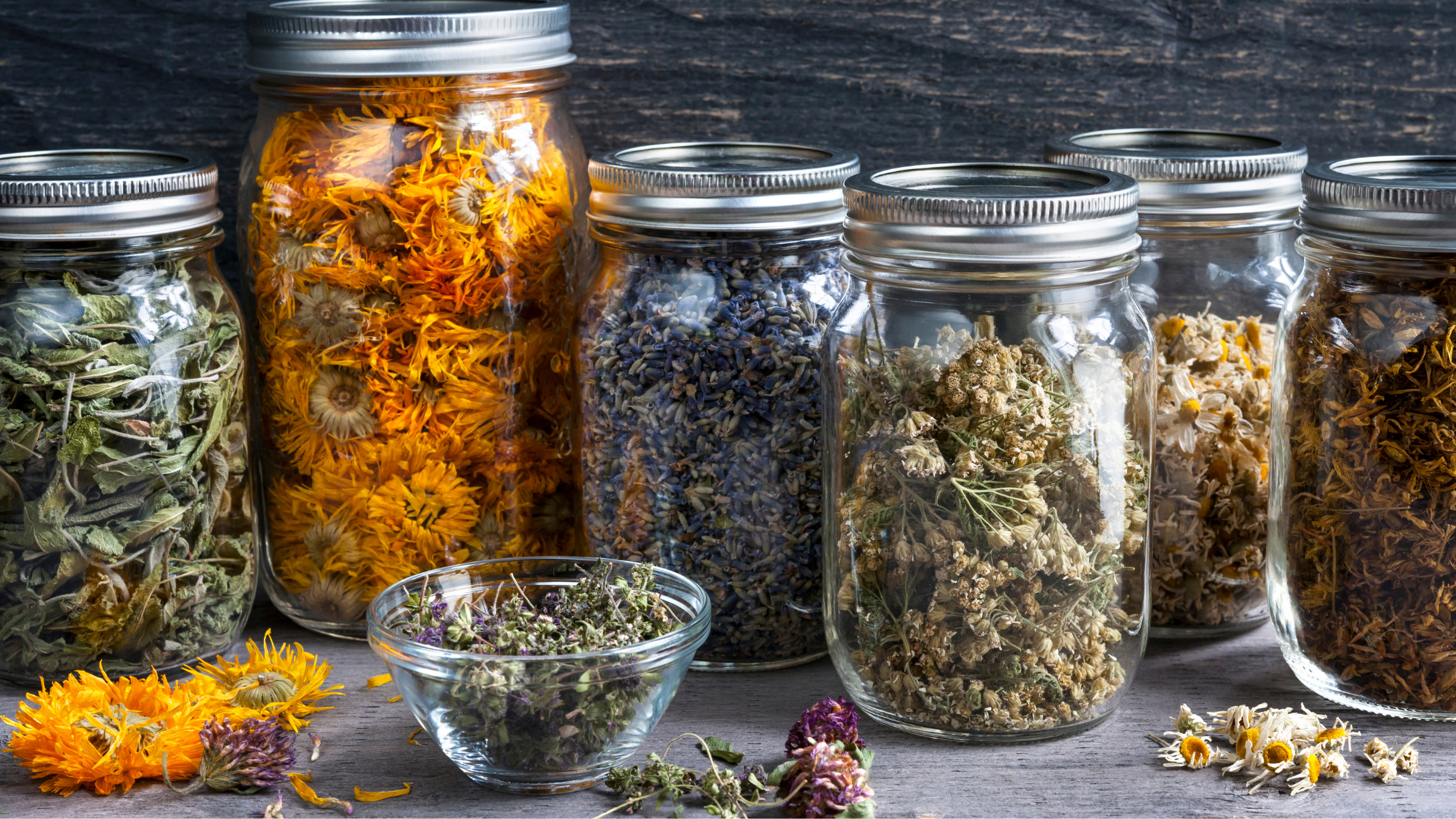Mental health comes with a pressing stigma in the construction industry. Workers are made to feel like they should “toughen up” and bottle emotions, but tradespeople experience the same mental health struggles as any other industry. It’s important to speak with a professional for a proper diagnosis, but if you’re looking for an herbal remedy to lessen the blow, herbs like lavender, linden, passionflower, and St. John’s wort may offer some welcome benefits.
The mental health dilemma
The construction industry has one of the highest suicide rates of any industry. While workplaces have become more open and progressive when it comes to mental health struggles, there’s still a long way to go. In 2021, figures show that almost a fifth (17.9%) of deaths by suicide with a reported industry code were in construction, despite construction workers accounting for a mere 7.4% of the workforce. The construction labor sectors in Australia and the United Kingdom are similar, with suicide rates up to 3.7x higher than their national averages.
Companies have begun implementing mental health awareness policies and training to encourage open dialogue on the subject. However, this is often not enough to make a significant impact in a short amount of time. As such, other options for improving mental health should be considered—that’s where herbal medicine comes into play.
Here’s an overview of some of the best herbal medicines to improve mental health and well-being. That said, it’s important to always consult with your medical professional before adding a new supplement to your regime.
Herbs to support better mental health
St. John’s wort
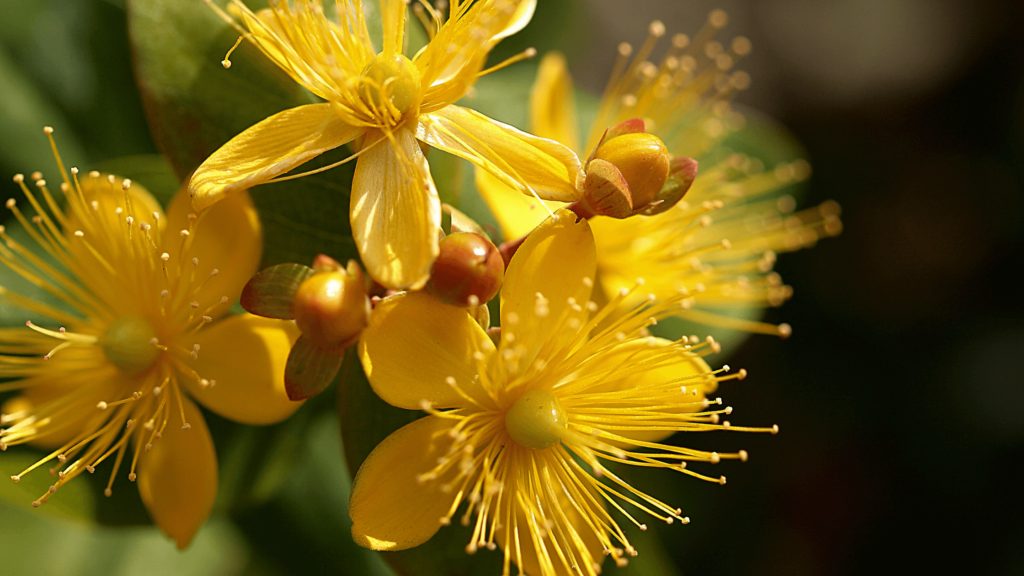
What it is: St. John’s wort is a plant with yellow star-shaped flowers native to Europe. It’s mainly known to treat depression in mild cases. The herb works much like an SSRI, acting as a reuptake inhibitor of the neurotransmitters serotonin, dopamine, and norepinephrine. Elevated levels of neurotransmitters in the brain are thought to be helpful when treating depression.
Benefits for mental health:
- Eases mild to moderate depression: A 2008 study looked at the efficacy of St. John’s wort for major depression and found that it was more effective than a placebo and as effective as some common prescription anti-depressants in treating depressive symptoms.
- Improves sleep: A 2007 study published in Planta Medica shows the protective effects of St. John’s wort on sleep deprivation-induced anxiety-like behavior and oxidative damage, as well as its ability to sleep quality and duration.
Precautions: St. John’s Wort can interact with several medicines, so consult your healthcare professional before taking it.
Ashwagandha
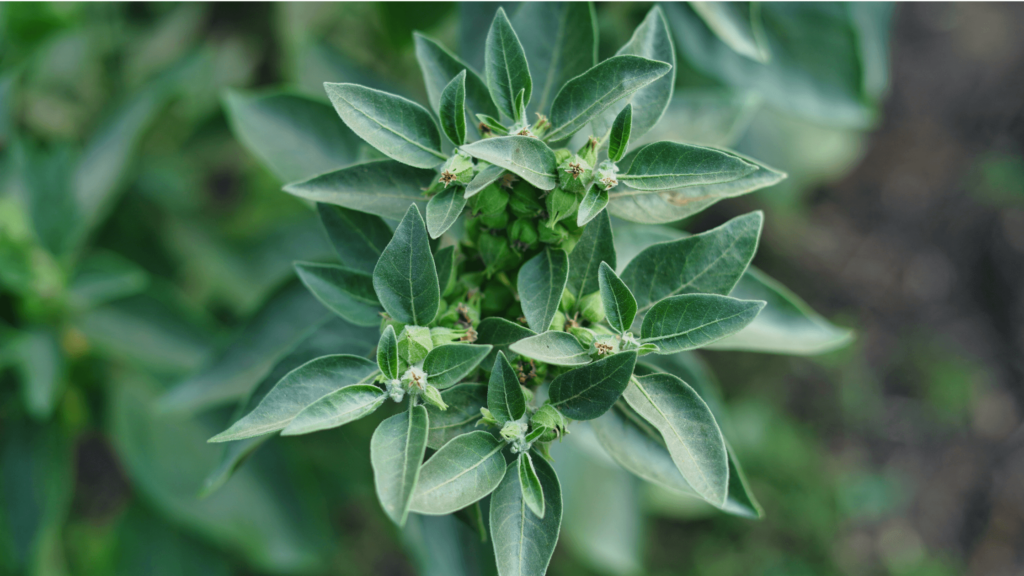
What it is: Ashwagandha is a shrub native to Africa and Asia that’s classified as an adaptogen. Ashwagandha is known to enhance the body’s resilience to stress, improve the body’s defense against disease by bolstering cell-mediated immunity, and possess potent antioxidant properties that protect cells against free radicals and oxidative stress. Thanks to its adaptogenic properties, the herb is often used to relieve stress, induce calmness, lower blood pressure, and improve immunity.
Benefits for mental health:
- Lowering cortisol levels: Cortisol is a stress-release hormone, and chronically high cortisol levels can contribute to chronic anxiety. Some research shows that ashwagandha supplements can improve cognitive abilities, lower cortisol levels, and improve self-reported mood, stress, food cravings, and anxiety.
- Boosting mood: Ashwagandha has been shown to contain mood-enhancing properties, further reducing depression and anxiety symptoms. It is thought to work by increasing neurotransmitters like serotonin and dopamine levels in the brain.
- Improving sleep: A 2019 study found that participants who took either 250 mg/day or 600mg/day of Ashwagandha significantly improved their sleep quality compared to people taking a placebo.
Passionflower
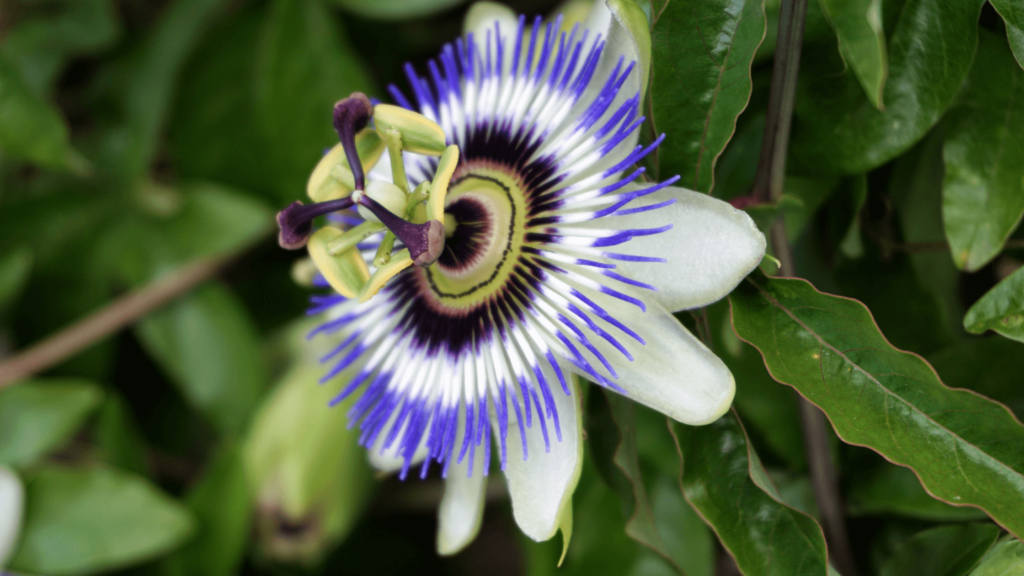
What it is: Passionflower is a climbing vine with white and purple flowers native to the Southeast. It’s believed to work by modulating the GABA system, offering benefits for anxiety or nervousness, Generalized Anxiety Disorder (GAD), insomnia, and more.
Benefits for mental health:
- Reduced anxiety: Passionflower has anxiolytic effects that help promote relaxation and lessen anxiety with no adverse effects.
- Improved sleep: Passionflower has sedative properties that enhance sleep quality and duration. It calms the mind and quiets thoughts, making it easier to relax into sleep.
Chamomile
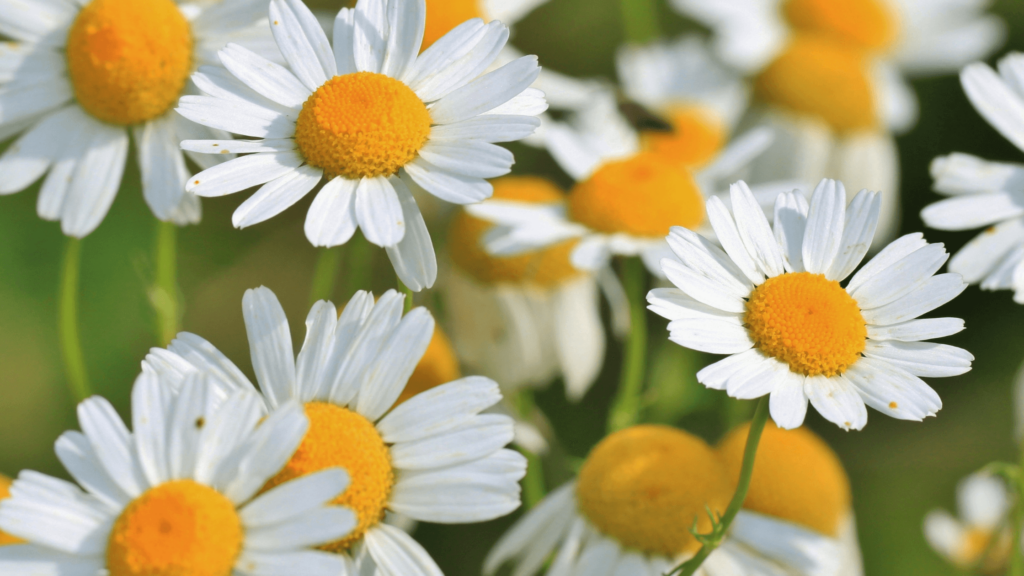
What it is: Chamomile belongs to the Asteraceae (sunflower or daisy) family of herbs and is grown up to 3 feet high in countries worldwide. It’s been used as a medicine for thousands of years in cultures in Greece, Rome, and Egypt. It’s widely regarded as a mild sleep-inducer (sedative) due to the presence of the flavonoid apigenin that binds to benzodiazepine receptors in the brain.
Benefits for mental health:
- Calms the nervous system: Chamomile is a nervine, meaning it restores nervous system balance when we feel unsettled and anxious. Its bioflavonoid compound binds to the same receptors as some anxiety medications, helping to reduce anxious feelings.
- Increases neurotransmitters: Several studies show that the active component in chamomile may have an antidepressant effect by regulating catecholamines, serotonin (5-HT), and gamma-aminobutyric acid (GABA) neurotransmission.
Kava
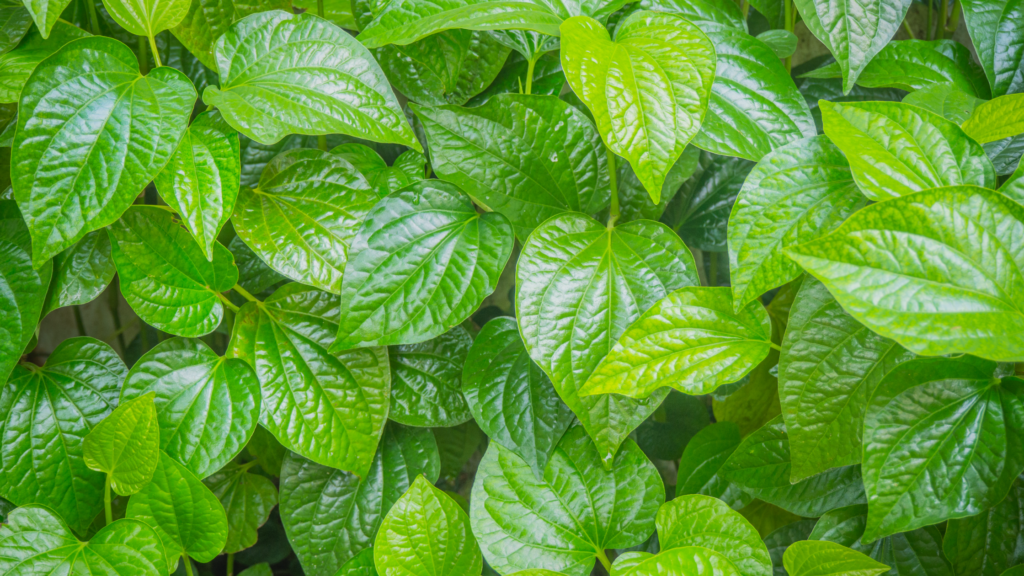
What it is: Kava kava (or “kava” for short) is made from the root of the Piper methysticum, a plant native to the islands of the Pacific Ocean. It contains kavalactones (kavapyrones) that have similar effects to alcohol on your brain, making you feel relaxed, calm, and happy, mediated by effects on the limbic system. It’s also thought to relieve pain and relax muscles.
Benefits for mental health:
- Reduces symptoms of depression: The Kava Anxiety Depression Spectrum Study (KADSS) shows a positive correlation between kava intake and people with anxiety or depression. Results show fewer depressive symptoms, including lethargy, low mood, and feelings of hopelessness.
- Lower frequency of panic attacks: Kava also has anxiolytic effects and may reduce the frequency and severity of panic attacks thanks to its ability to modulate GABA levels in the brain.
Lavender
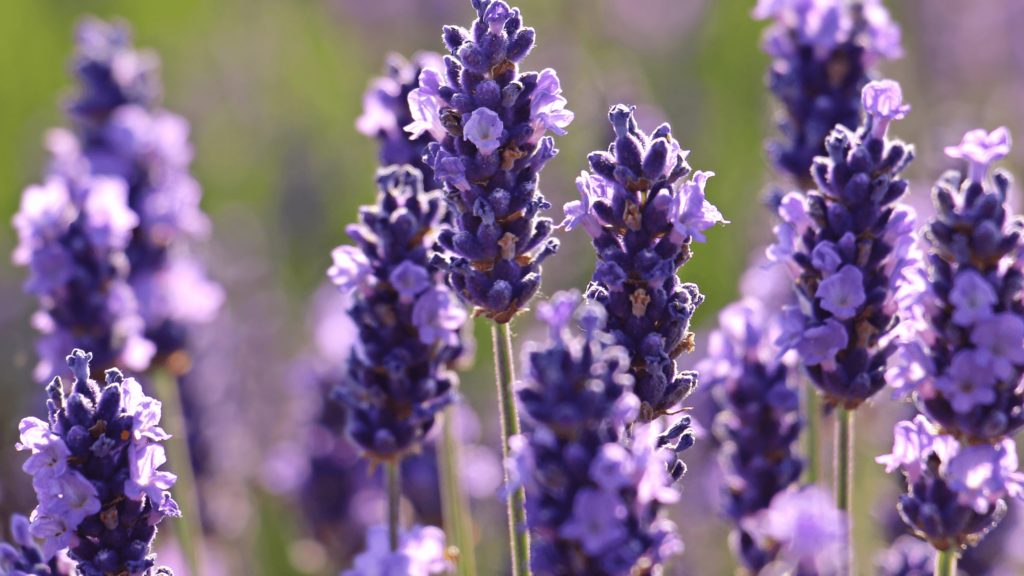
What it is: Lavender, a popular mint-family plant, is a genus of roughly 30 plants native to countries bordering the Mediterranean. It’s well-known for creating a relaxing atmosphere and boasts the ability to calm without sedation and reduce anxiety.
Benefits for mental health:
- Improves sleep: Lavender is a popular essential oil and a remedy for insomnia. A randomized controlled trial found that inhaling lavender promotes calm and relaxation and improves sleep quality.
- Provides anxiety relief: According to a 2020 study published in Complementary Therapies in Medicine, lavender tea consumption can reduce anxiety and depression scores in elderly participants.
Motherwort
What it is: Motherwort, sometimes referred to as lion’s tail, is a native plant in North America with anti-inflammatory and antioxidant properties. It contains numerous plant-based compounds—flavonoids, sterols, triterpenes, and tannins—that protect cells against the harmful effects of free radicals and may ease anxiety.
Benefits for mental health:
- Reduces anxiety and depression: Motherwort has calming effects on the nervous system, which promotes emotional well-being and reduces anxious feelings.
- Enhances bodily function: Motherwort possesses cardioprotective, antioxidant, anti-inflammatory, antimicrobial, and antiviral properties that support the optimal function of various body systems.
Fun fact: Motherwort is one of the few plants that has a square stem!
Linden
What it is: A common name for trees in the Tilia genus, linden is native to parts of Europe, Asia, and North America. Its dried leaf, flower, and wood contain chemicals that have sedative effects and reduce inflammation.
Benefits for mental health:
- Promotes relaxation: Linden (Tilia tomentosa) possesses strong sedative properties; it mimics the action of GABA in the brain, inhibiting excitability in the human nervous system.
- Fights inflammation: Tiliroside, a potent antioxidant found in linden buds, is a free radical scavenger that protects cells against oxidative damage that can lead to inflammation.
- Reduces anxiety: Some research shows that compounds in linden mimic GABA and benzodiazepine agonists, making it an effective sedative and anxiolytic.
Why herbal medicine?
Herbal medicines are often chosen as a gentler and healthier option over traditional over-the-counter prescription drugs. While some herbs aren’t as effective as medications, many are science-backed and offer many of the same benefits without the drawbacks.
Herbal medicine is used in:
- Traditional Chinese Medicine (TCM): TCM is a complete medical system that diagnoses, treats, and prevents illnesses. It has been around for over 2,000 years and is rooted in the belief of yin and yang, established as opposing energies, like earth and heaven, winter and summer, and hot and cold.
- Western Herbal Medicine (WHM): WHM uses naturally occurring plant material or plants with little or no industrial processing to promote health and healing. It can strengthen body systems and support regeneration by restoring vitality and balance to the body.
Forms of herbal medicine
Herbal medicine is available in various forms, including:
- Tinctures
- Teas
- Capsules
- Powders
- Syrups
- Essential oils
Each form offers its benefits and potency, so speak to a certified herbalist or holistic medicine practitioner about the best option for you.
Bottom line
Mental health remains one of the biggest challenges for the construction industry. Workers can use a lower-risk, non-invasive form of care to support mental health and well-being by utilizing herbal medicines such as kava, linden, chamomile, and passionflower.
Remember, herbal medicine is still a form of medicine that can be dangerous if not used properly. Speak with your healthcare provider before starting your herbal medicine journey, and monitor your symptoms as you engage. You matter, and your mental and physical health does, too.
Want more? Subscribe to our weekly newsletter for more articles, news, and tips on wellness for construction professionals.
